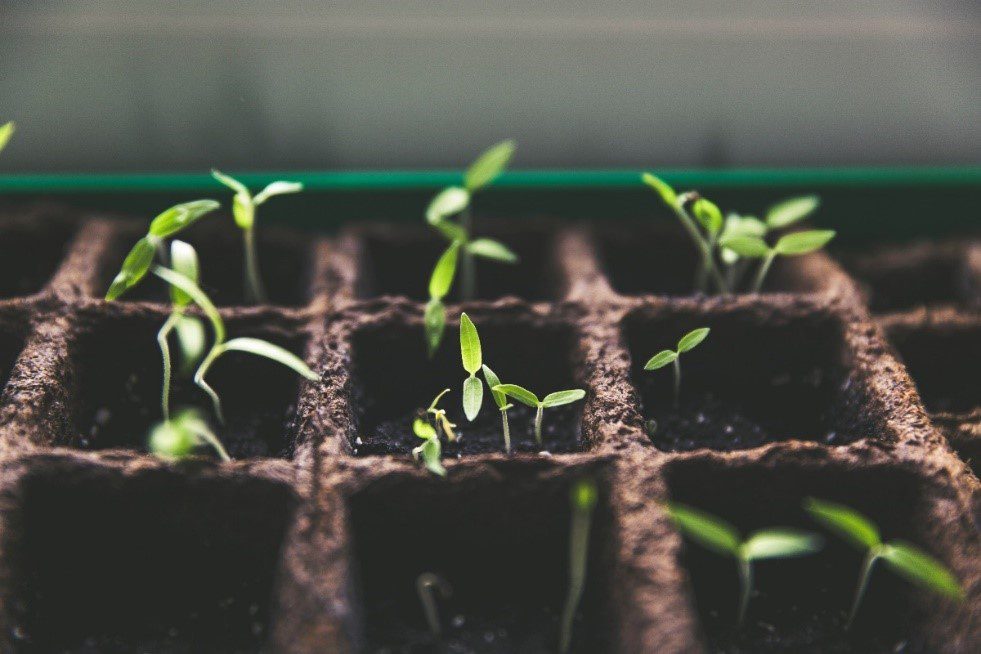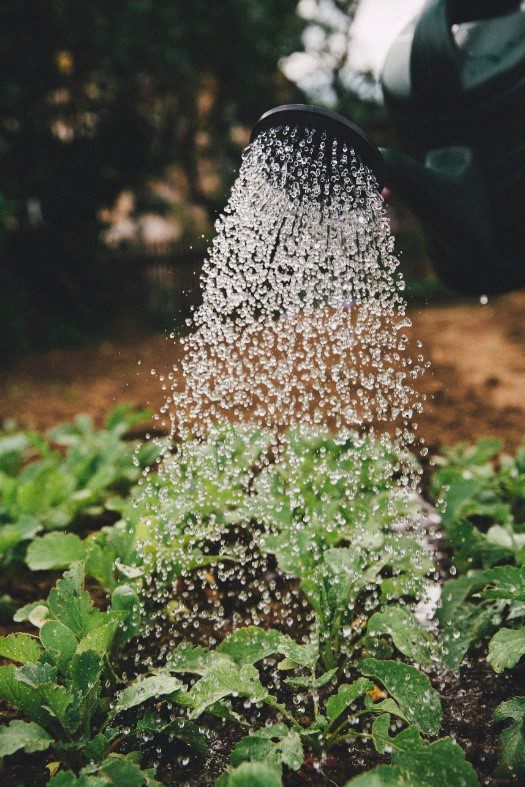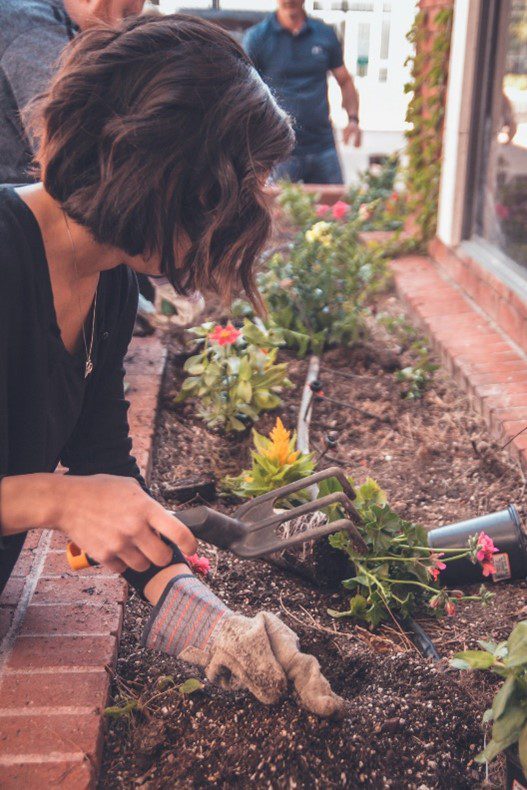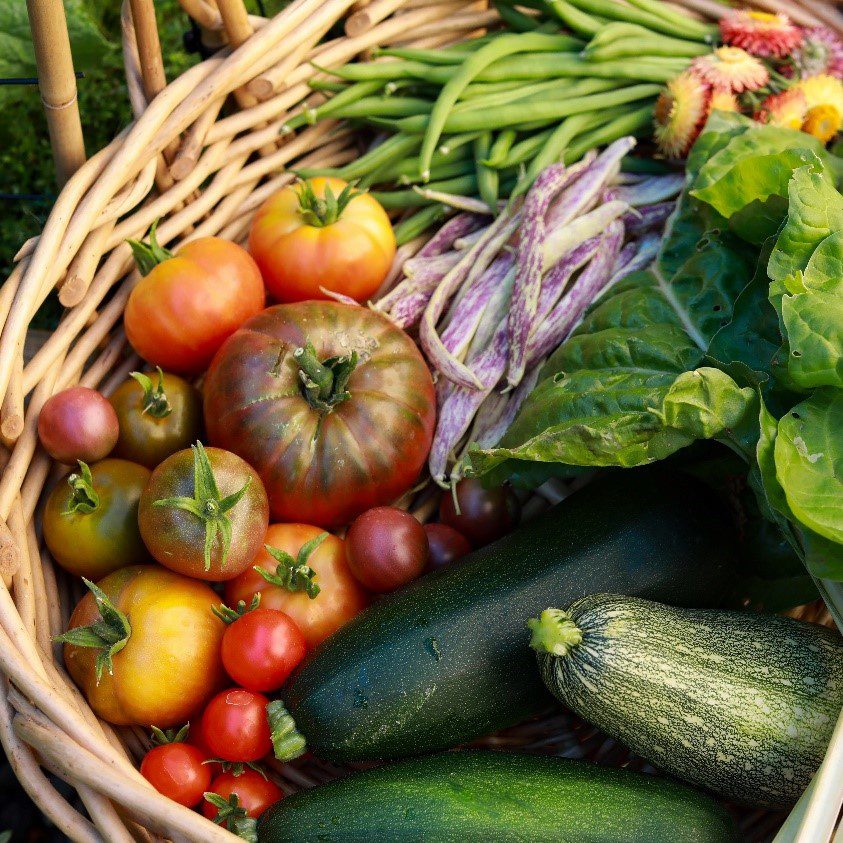When allowed time to fully incorporate any changes in your life – to really enjoy the fruit at its ripest – then those changes are more sustainable.
Change is an interesting animal – at times it can be a beast and at times it can be a soft little lamb. Whether it’s something you desire or something that wasn’t on your wish list, change is inevitably a part of the human experience. As the saying goes, “the only constant is change.”
In today’s world of instant gratification and response, we tend to be impatient as we wait for each change to manifest. However, it serves us to remember when sowing those seeds of change, it takes time for the seeds to sprout and mature. Even if those changes bring something extremely challenging, having patience to work through it will be worth it.

Photo by Markus Spiske on Unsplash
When you don’t tend the garden carefully and move with its natural rhythm for growth, you end up with a garden full of chaos and low yield. Instead, if you learn to take the time to let the sprouts unfold, weeding out what you don’t want, thinning overgrowth, then you end up with a garden of gorgeous plants that can sustain and nurture you.
A garden that gives nourishment, requires careful planning – preparing the soil so that it is rich and ready to support your plantings, choosing your seeds and how you’re going to arrange them in your garden, researching for the optimum window of planting and harvesting opportunity. Then, once you lay out your garden and put those seeds into the ground, the most important part of all is to step back and wait. And during that waiting period you fertilize those sprouts, you water them, you take out the weeds and the things that no longer sustain the beauty and the growth of the garden you anticipate. And through this cycle you begin to learn that impatience doesn’t serve to manifest a garden that is full of gorgeous and sustainable beauty.

Photo by Markus Spiske on Unsplash

Photo by Lucas Ludwig on Unsplash
Aside from solution-focused wellness coaching and gardening, among my other interests and talents is as a master sidereal astrologist. This has led me to study and understand the mythology behind the planets that influence us. Saturn is one such planet with whom I’ve had a love-hate relationship. Saturn is known in astrology circles as the ruler of Time. And Patience. Structure. Patience. Foundation. Patience. Diligence. Patience.
See a pattern there? When we so want to forge ahead, see that change come to fruition, manifest instant results, Ol’ Man Saturn comes along and says, “Nope. Not this way. Patience, dear one. Patience. I promise it will be worth it.” And this is hard. Especially if the change process is challenging. That’s the “hate” part of the relationship. We really quickly want to see those fruits of our labor.
Where the “love” part comes in happened very recently. When lamenting the reins of Saturn determining how quickly we can see our efforts manifest, a fellow astrologer clued me into a little-known fact that Saturn also is recognized for governing agriculture. Of course, that makes complete sense! Now I could consider him a good guy because he not only helps us to be planful and diligent, but he also brings this to our gardening world. Suddenly, I decided I could like the man. He’s actually aiding us in learning how patience and perseverance pays off.

Photo by Duane Mendes on Unsplash
So, now that we’ve built that garden of beautiful change, then what do we do with it? Sometimes we don’t wait long enough for the change itself to fully bloom before we plant the next garden. It’s important to learn how to work with that beautiful plant before we intentionally sow another garden of new change. Cue Mr. Saturn here to remind us of the benefit of looking at the long-term payoff versus the immediate pleasure hit.
When allowed time to fully incorporate any changes in your life – to really enjoy the fruit at its ripest – then those changes are more sustainable. This holds true for any changes – those that bring positive results and those that come out of the blue as difficult challenges. Moving through them carefully gives the opportunity to learn from the process. To understand what strengths and courage you have to meet those challenges. If you deliberately jump from one change to the next without being present to what has just transformed, without concept or understanding of what those newly harvested plants have brought to your life, you’re at risk for that scattered garden of immature or undesired plants. You must allow the plants to take root and become established, so they are strong and resilient against any storm.
As clients are guided to interpret their own stories (aka natal chart and subsequent transits), and work through the challenges that are presented, the suffering they experience always leads to great healing. Hence my opening words at the start of this writing. The deeper the suffering along with the greater understanding of the why, then the deeper the healing can be. Subsequently, as the client begins to feel relief, have hope, then the light begins to show itself again.

Photo by Nina Luong on Unsplash
What are some ways you can ensure that you understand what that plant of change has brought to you? You might take stock of the change itself when it happens. Journal, reflect through meditation. Listen to songs that might align with what that change has brought for you and see what messages may come. Work with a solution-focused wellness coach. Talk to others who may have gone through similar changes or have planted the same kind of garden. It’s amazing what you can do when you build a community of understanding with people who have the same type of garden or experience when learning how to nourish that garden. Anything you do to fully enjoy the fruits of your labor – that new-found joy and fulfillment – is the answer.

I’m here to be a part of your garden community to help you explore ways to nurture those plants and enjoy the harvest after plant your seeds in your change garden. Contact me at to schedule a session or to discuss the options available for you.
